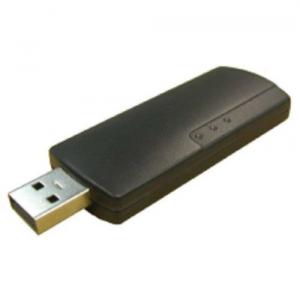 Verizon Wireless and Google this morning surprised the wireless mobile industry when it went far beyond a much-anticipated agreement between Verizon and Google to market smartphones using Google’s Android operating system, and instead seemed to embrace Net Neutrality for unrestricted use of online services on Verizon Wireless’ network. Is this a consumer-friendly about face or a strategic effort to take the wind out of the sails pushing for formal adoption of Network Neutrality regulations?
Verizon Wireless and Google this morning surprised the wireless mobile industry when it went far beyond a much-anticipated agreement between Verizon and Google to market smartphones using Google’s Android operating system, and instead seemed to embrace Net Neutrality for unrestricted use of online services on Verizon Wireless’ network. Is this a consumer-friendly about face or a strategic effort to take the wind out of the sails pushing for formal adoption of Network Neutrality regulations?
Today’s announcement represents a complete reversal for Verizon Wireless, which announced opposition for wireless Net Neutrality in September. Tom Tauke, Verizon’s executive vice president of regulatory affairs said then: “We believe that when the FCC reviews the record and looks at the facts, it will be clear that there is no current problem which justifies the risk of imposing a new set of regulations that will limit consumer choices and affect content providers, application developers, device manufacturers and network builders.”
Google and Verizon have been on opposite sides of the Net Neutrality debate for several years now. The phone company spends millions of dollars lobbying Washington to keep Net Neutrality off its back, in direct opposition to Google’s strong advocacy for the consumer-friendly open network rules. One might anticipate a joint webcast between the two companies would be reserved in tone at best.
It wasn’t.
In fact, Verizon Wireless CEO Lowell McAdam and Google Chairman and CEO Eric Schmidt fell all over themselves praising one another, and attacked Verizon’s nemesis AT&T.
McAdam took a shot at AT&T for the recent controversy over their decision to block Google Voice and other Voice Over IP services from working with AT&T’s wireless network.
“Either you have an open device or not. This will be open,” McAdam said.
Schmidt praised Verizon Wireless’ nationwide mobile broadband network, calling it “by far the best in the United States.”
AT&T understood the implication of the partnership between its biggest rival and the super-sized Google and announced it was reversing its decision to block Voice Over IP applications on its network.
Ralph de la Vega, chief executive of AT&T’s consumer wireless unit, said “the iPhone is an innovative device that dramatically changed the game in wireless when it was introduced just two years ago. Today’s decision was made after evaluating our customers’ expectations and use of the device compared to dozens of others we offer.”
That’s a remarkable statement coming from a company that has routinely ignored the wishes and expectations of its iPhone customers for less expensive, higher quality, less restrictive service.
AT&T’s reversal was praised by FCC Chairman Julius Genachowski, who is pushing for adoption of Net Neutrality as part of FCC broadband policy.
“When AT&T indicated, in response to the FCC’s inquiry, that it would take another look at permitting VoIP on its 3G network I was encouraged,” Genachowski said. “I commend AT&T’s decision to open its network to VoIP. Opening wireless services to greater consumer choice will drive investment and innovation in the mobile marketplace.”
Have AT&T and Verizon suddenly realized taking a customer-friendly position of Net Neutrality is better for their corporate image?
Perhaps, but one might also consider the reversals to be part of a strategic effort to demonstrate a lack of need for Net Neutrality rules in a ‘remarkably open and free competitive wireless marketplace.’ Expect to see that line or something akin to it coming from the anti-Net Neutrality lobbying campaign within hours of today’s events.
AT&T has also spent millions on lobbying efforts in Washington to keep Net Neutrality and other telecommunications legislation at bay. The prospect of a sudden role reversal for two of the biggest spenders on influencing public policy would be remarkable, if it actually happened for consumers’ sake.
Verizon Wireless & Google Joint Webcast — October 6, 2009 (18 minutes)
You must remain on this page to hear the clip, or you can download the clip and listen later.


 Subscribe
Subscribe

